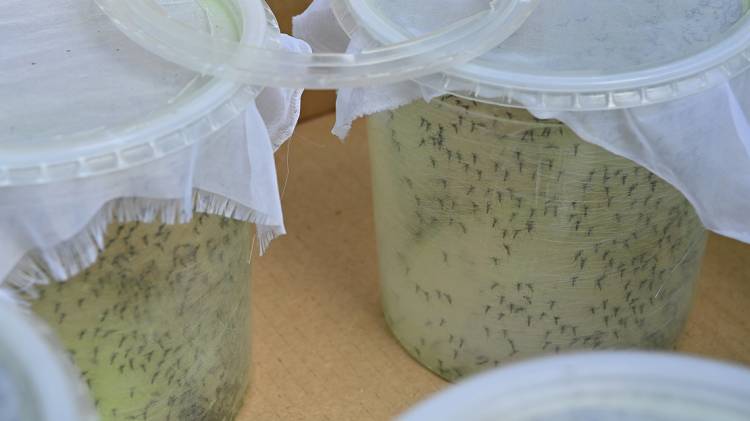Recife and Angra dos Reis – Brazil is a key IAEA partner, and the exchange of knowledge between the Agency and Brazilian experts in the peaceful uses of nuclear science can benefit both and beyond, Director General Rafael Mariano Grossi said during his visit to the country, where, among others, he saw an IAEA-supported project to use a nuclear technique to combat mosquitoes that transmit Zika and dengue, and visited the Angra dos Reis nuclear power plant.
The week-long visit, Mr Grossi’s first to Latin America since he took office in 2019, kicked off in the city of Recife, where he participated in insect releases as part of an IAEA-supported programme to use the Sterile Insect Technique (SIT) to control mosquitoes in the neighbourhood of Brasilia Teimosa. The SIT is a type of birth control for insects, where male insects are mass reared and rendered unable to reproduce using radiation. They are then released in large numbers to mate with wild females, resulting in no offspring and therefore contributing to a decline in the mosquito population over time. The method has been used for decades to control agricultural pests such as the Mediterranean- and Screwworm flies and has recently been developed against mosquitoes.
The project implementing partner, Moscamed Brasil, is one of the first SIT facilities in the world to mass rear sterile Aedes aegypti mosquitoes for release, targeting two municipalities in the Brazilian states of Bahia and Pernambuco which were particularly hard-hit by Zika in 2016. The IAEA has provided support to Moscamed Brasil since 2005 and facilitated the transfer of a gamma cell irradiator in recent years to scale up the production of sterile insects.
“What we see here is nuclear science for development, improving the lives of people,” Mr Grossi said in Recife. “The result of the pilot trials in Recife to use SIT to fight Zika, dengue and other diseases will be important not only to Brazil, but worldwide.”








